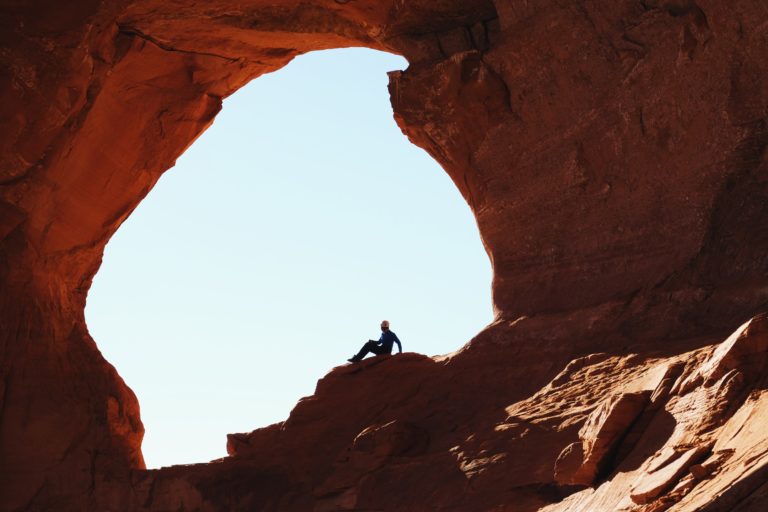All new students at St. Martin’s Academy spend their first week on an outdoor expedition, which is organized in partnership with Catholic Outdoor Renewal (COR) Expeditions, an outreach of Wyoming Catholic College. On the trip, students carry everything they need on their backs, sleep out under the stars, cook all their own meals, canoe, swim, rock climb, and rappel.
The Outdoor Expedition at St. Martin’s is more than just a summer camp. As an integral part of the curriculum, the expedition supports each of the four pillars of formation at St. Martin’s. The ultimate goal at St. Martin’s is the formation of the whole man and the fostering of an authentic and unchauvinistic masculinity. This goal is approached by means of three stages: (1) the healing of the imagination, (2) the awakening of wonder, and (3) the development of attentiveness. The outdoor expedition follows this same progression and aids in achieving these goals.
Nurture Authentic Masculinity
“Manhood, not scholarship, is the first aim of education.” – Ernest Thompson Seton, Boy Scouts of America co-founder
A boy does not become a man simply by being told the right thing to do. In other words, studying morality does not result in personal holiness any more than studying medicine results in good health.
Studying morality does not result in personal holiness any more than studying medicine results in good health.
For a boy to become a man, simply knowing the good is not enough; he must do the good. In this sense, a boy only becomes a man by doing manly deeds, that is, by doing acts of virtue (from the Latin vir, meaning “man”). St. Martin’s wilderness expedition provides just such an occasion. C.S. Lewis once wrote that “The problem with man is not that his desires are too strong, but that his desires are half-hearted.” The wilderness provides a needed challenge to our young men; it is a call to grow in strength, courage, leadership, and determination.
Heal the Imagination
In 1936, the Catholic novelist Georges Bernanos wrote “…if our species is ever to perish, it will die of boredom, of stale disgust.” Boredom and complacency are perennial temptations of human nature, though the dangers of these temptations have certainly been aggravated by the proliferation of modern “entertainment” technologies. On the St. Martin’s outdoor expedition (and for all four years at the school), students are removed from the distractions of smartphones, television, and social media, and given the freedom to reengage reality.
“Low ceilings are bad for the soul.” – Fyodor Dostoyevsky
The wilderness provides occasion for a direct encounter with beauty, and the process of healing the imagination can begin.
Awaken Wonder
“Low ceilings are bad for the soul.” – Fyodor Dostoyevsky
Sleeping under a star-strewn sky opens a boy’s eyes to wonder. On the St. Martin’s wilderness expedition, students are immersed in God’s First Book, and they begin to see the correlation between the grandeur of creation and God’s grandeur. In the power of a river or the majesty of a mountain, students come “to comprehend with all the saints what is the breadth and length and height and depth, and to know the love of Christ which surpasses knowledge” (Eph 3:18-19). An encounter with true wilderness awakens the wonder our culture has put to sleep. Over their four years at St. Martin’s, this seed of wonder comes to flower in real wisdom.
Develop Attentiveness
When one has constant access to an “Undo” button, it is easy to lose sight of the importance of attentiveness. In the wilderness, on the other hand, students quickly learn that their actions have real consequences. If a student decides he’d rather not put up his tent and then it rains in the night, he’s wet in the morning. Nothing in the wilderness is artificial and nothing is contrived. On the week-long expedition, students have their mettle tested by being put into real leadership positions with real consequences. Sophocles once said that “You don’t know the character of a man until you put him in a position of power.” At St. Martin’s we believe that leadership is not something that one is either born with or not. We believe that leadership can be learned, and that the best way to learn leadership is by being put in a real leadership position. St. Martin’s students are not only encouraged to lead, they are expected to lead, and because the consequences of their decisions are real, they quickly come to see that their choices matter and that attentiveness is critical.


